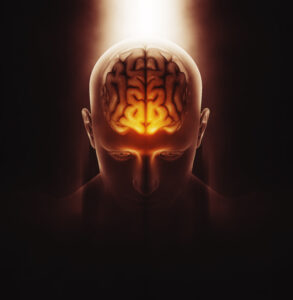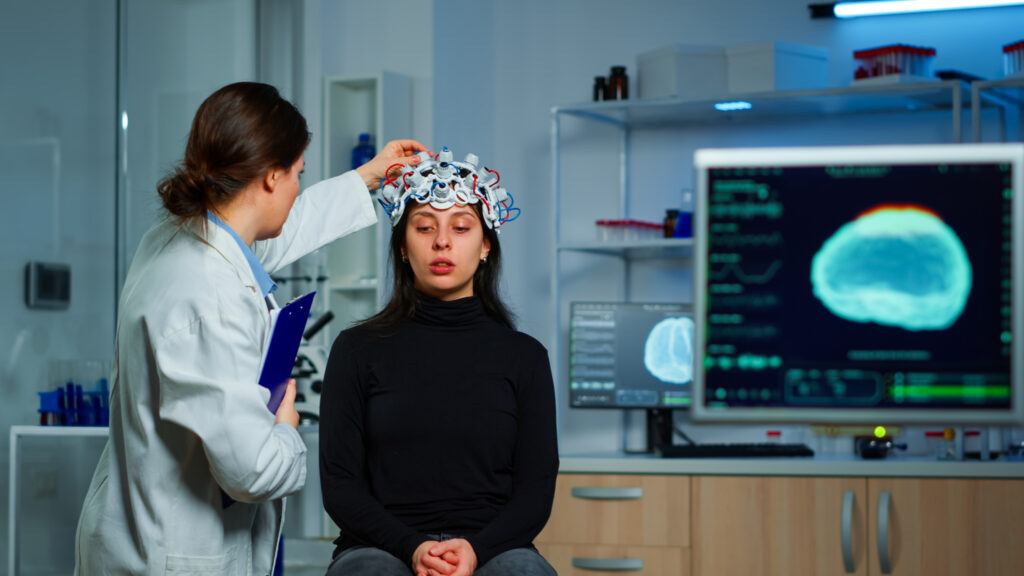What is Epilepsy?
Epilepsy is a very difficult neurological disorder which is presented in the form of periodic and spontaneous seizures. Such seizures are caused by abnormal electrical activity in the brain, which gives rise to different types of physical and sensory symptoms. Sometimes, altered consciousness. Epilepsy occurs across age groups ranging from childhood right through to old age. It causing serious impairment in various aspects of people’s lives. Epilepsy has different causes and triggers in different people. But what is important is knowing how to live together with epilepsy or managing it as a condition to improve the lives of those suffering from the same. Epilepsy is an area under constant research and exploration. As its manifestations vary greatly in terms of severity, occurrence, and management.

What are the Types of Epilepsy?
Epilepsy can be divided into a range of seizure disorders, each with its unique characteristics. The various types of epilepsy can be listed as follows:

1. Focal Onset Epilepsy: This type occurs only in a specific area of the brain and gives rise to focal seizures. These seizures can cause symptoms such as muscle twitching, altered sensations, or sensations of unusual emotions. This type of epilepsy can evolve into generalized seizures occasionally.
2. Generalized Onset Epilepsy: This type of seizure occurs involving the entire brain from the initial onset of seizures. They can be further categorized into the following subtypes;
– Absence Seizures: Brief absence in consciousness, often present in children as staring spells.
– Tonic- Clonic Seizures: This type of seizure presents features such as loss of consciousness, muscle rigidity, and violent jerking movements.
– Myoclonic Seizures: This type usually presets with sudden, brief muscle jerks or twitches.
– Atonic Seizures: Characterized by sudden loss of muscle tone, leading to falls or head drops.
3. Unknown Onset Epilepsy: When the exact area of the brain where the seizure origins can’t be identified, those seizures are categorized into this type.
4. Complex Epilepsy: If you experience a combination of focal and generalized seizures you might be having this type of epilepsy.
What are the Causes of Epilepsy?
Identifying a specific cause in every patient with epilepsy can be challenging, as epilepsy can have various underlying causes and risk factors. But we can list the common causes and contributing factors associated with epilepsy as below:
1. Most commonly the exact cause of epilepsy remains unknown and often named as idiopathic epilepsy.
2. Some patients with epilepsy may have a genetic predisposition which means the presence of specific genes and family history can play a role in the development of the condition.
3. Trauma to the brain due to accidents, falls, or head trauma can lead to abnormal electrical activity in the brain increasing the risk of epilepsy.
4. The presence of brain tumors, cysts, or structural abnormalities in the brain can trigger seizures and result in epilepsy.
5. Infections in the brain such as meningitis, encephalitis, or brain abscesses can damage brain tissue increasing the risk for the development of epilepsy.
6. Conditions like stroke and any vascular problems that disrupt the blood flow to the brain can lead to brain damage increasing the risk of epilepsy.
7. Neurological conditions such as Alzheimer’s disease and multiple sclerosis can also be associated with the development of epilepsy.
8. Some metabolic conditions like phenylketonuria.
9. Developmental abnormalities of the brain.
10. Substance abuse, including alcohol and certain drugs, can trigger seizures and contribute to the development of epilepsy.
11. High fevers can lead to febrile convulsions in small children which can later be complicated by epilepsy.
12. Certain autoimmune conditions can affect the brain and increase the risk of epilepsy.
13. Issues during pregnancy, childbirth, or the neonatal period can lead to brain damage resulting in the development of epilepsy later on.
What are the Symptoms of Epilepsy?
Epilepsy manifests diverse signs, but individual cases also characteristically determine certain distinct symptoms which depend on the area of the brain affected as well as the nature of seizure.
Below, we can list several common symptoms of epilepsy.
1. Seizures can be defined as one most obvious symptom that develops, and it occurs in two ways: Generalized and Partial seizures if you suffer from epilepsy.
2. Occasionally you might also get an aura if you suffer fits of epilepsy. Therefore, these auras are like warning signs that might arise in the form of strange senses, feelings, and impressions.
3. Loss of consciousness and awareness about the surroundings can happen briefly in an epileptic seizure.
4. Uncontrolled movements such as tremors, jerking of the limbs, and abnormal posture.
5. Strange tastes, smells, and visual disturbances are some of the sensory experiences that you may occasionally undergo while having seizures.
6. After a seizure, you may get confused and forget some of the things.
7. Sometimes people having epilepsy may make meaningless actions while undergoing convulsion, for instance, they can engage in activities such as lip-smacking, chewing, and fumbling.
8. They may sometimes present with sudden loss of muscle tone that could lead to falls or even head drop.
9. Some types of seizures can involve brief periods of looking into space (with intermittent lack of awareness).
10. One can also experience sudden emotional changes, involving for instance extreme scary, overwhelmingly terrified, or déjà vu in a flash.
What are the Complications ?
Some of the potential complications of epilepsy can be listed below
1. Injuries are the most common complication of seizures which can include falls, head injuries, fractures, and other physical injuries. Hence if you are having epilepsy you may be at an increased risk of accidents during seizures, which can even lead to long-term physical complications.
2. This condition can also be emotionally challenging as you may experience anxiety, depression, and social isolation when you are living with epilepsy.
3. Cognitive functions can get altered leading to memory problems, difficulty concentrating, and reduced intellectual abilities affecting an individual’s education and employment opportunities.
4. A medical emergency called status epilepticus can occur which can be defined as the occurrence of seizures following one another without recovery in between. Unless treated immediately this can lead to brain damage and even life-threatening situations.
5. Anti-seizure medications can cause various side effects such as drowsiness, weight gain, mood changes, and liver problems.
6. If you have epilepsy a major issue you will face is the restriction to engage in certain jobs and may face limitations on your ability to drive, which can impact your independence and career prospects.
7. Epilepsy can reduce an individual’s overall quality of life, affecting their ability to engage in everyday activities, maintain relationships, and pursue personal goals.
8. Various complications can occur in pregnancy due to epilepsy which may require special care and medication adjustments to ensure the health of both the mother and the baby.

How to Diagnose Epilepsy?
Your healthcare officer will do a comprehensive evaluation of your health to diagnose the condition, its type, and its potential causes. The diagnostic process typically includes the following steps:
- Initially your medical officer will get a detailed medical history asking numerous questions about your condition. Which will be followed by a complete physical examination to elicit any physical signs to reach the diagnosis of epilepsy. They will interview you and any eyewitnesses of seizure episodes about the nature and frequency of the seizures. And also any auras or warning signs, and any potential triggers.
Required Investigations
- Next you will be asked to take an electroencephalogram (EEG). one of the key tests in determining the exact cause of seizures by its recording of all brain wave changes and activities. The technician will use electrode placements on your scalp to get electrical traces in your brain waves, sometimes when you are at rest or when engaged in activities that provoke seizures. EEG abnormalities can be used as strong indicators for epilepsy. This may also assist in the diagnosis of a particular case.
- Brain imaging, such as MRI or CT scan will help identify any anomaly, tumor, or lesions in the brain that could trigger a seizure.
- Extra diagnostic blood tests should detect metabolic problems, infections, and potentially poisonous substances that may contribute to seizures.
- Sometimes prolonged video EEG monitoring may be necessary to capture and record seizures as they occur. This can provide crucial information about the nature and origin of the seizures.
- Neuropsychological testing is used to evaluate cognitive functions and identify any associated cognitive or memory issues related to epilepsy.
- Genetic testing may be considered if there is a family history of epilepsy or if there is suspicion of a genetic component to the condition.
- You will be asked to maintain a detailed seizure diary, documenting the frequency, duration, and specific details of seizures, which can provide valuable information for diagnosis and treatment planning.
How to Manage Epilepsy?
Should your epilepsy become problematic, then you may need medical treatment, lifestyle adjustments, and a support network to minimize the condition’s symptoms. It is possible to manage the seizures, and decrease their effects as well as the chances of consequences through treatment.
1. Medical Treatment
– Commonly used medications such as antiepileptic drugs (anti-seizure drugs) are normally the first line of treatment in epilepsy. However, it is important to note that taking these medications on time and strictly as per the doctor’s prescription is paramount to achieving good results.
– You should also go for regular reviews by a neurologist, or a health care service provider, on how medication is working in you.
2. Lifestyle Modifications:
– Sleep deprivation is another contributing trigger for epilepsy and you will, therefore, need to maintain a regular sleep pattern.
– As stress can also provoke an occurrence of a seizure, following relaxation techniques like meditation and yoga to get rid of stress can help too.
– The intake of alcohol must be controlled.
– It is also necessary to avoid flashing lights, excessive caffeine, and certain medications that may initiate convulsions.
3. It is important to inform family members, friends, and close contacts of your condition and educate them on how they can help you in case of seizures. In addition, safety precautions should be followed in high-risk environments like swimming and when they may cause injuries in case of an epileptic crisis.
4. You should make a schedule for your visits to see a neurologist or epilepsy specialist as frequently as possible so that your situation can be discussed at times you have new kinds of attacks and those medication-related problems that you experience can also be reviewed as well as your prescription.
5. Maintaining a detailed seizure diary to track the frequency, duration, and characteristics of seizures can help your healthcare providers make informed decisions about your treatment.
6. You can also join epilepsy support groups or organizations to connect with others who have similar experiences and challenges as sharing experiences and advice can be valuable.
7. In some cases, a ketogenic diet or modified Atkins diet may be recommended, particularly for individuals with drug-resistant epilepsy.
8. Surgical options are also considered if you are having drug-resistant epilepsy or when the cause is related to a specific brain lesion.
How to Prevent ?
It must be noted that it is not always possible to prevent epilepsy since some of its causes are uncontrollable such as genetics and congenital brain malformations. Nonetheless, some precautions can be taken to minimize this epilepsy risk in some instances, especially when these involve lifestyle and environment.
Strategies to Consider
1. Head injuries should be prevented since they may increase the chance of developing epilepsy. One needs to put on helmets while doing activities like cycling, skateboarding, and contact sports to avoid head injury, use seatbelts and appropriate car seats for traveling by vehicle, and take precautions against falls especially when getting old.
2. Some conditions that lead to epilepsy include infections like meningitis and encephalitis. Therefore, keeping updated with vaccinations ensures one stays away from infections resulting in seizures.
3. Prenatal care should be adequate to minimize the risk of neonatal epilepsy. Proper medical attention during pregnancy will assist in ensuring such complications do not arise and thus prevent infants’ brain damage.
4. A well-balanced diet which includes low levels of blood pressure and sugar, unchecked health problems such as diabetes and hypertension also may cause seizures.
5. Smoking reduction or cessation, as well as abstaining from excess alcohol intake are some of the substances that can affect brain health.
5. in case you handle any type of chemicals and materials that could be dangerous for the nervous system – observe sanitary standards on the job and wear necessary security devices to decrease the danger of occupational illnesses.
References
- Kumar and Clerk’s Clinical Medicine -8th Edition- Parveen Kumar, Michael Clark
- Oxford Handbook of Clinical Medicine – 10th Edition
- Image by DCStudio on Freepik
- Image by kjpargeter on Freepik
